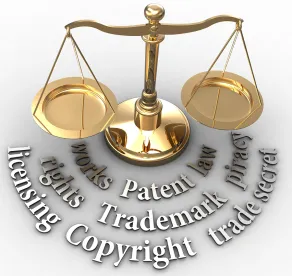On May 22, 2017, the United States Supreme Court overturned nearly 30 years of venue practice under Federal Circuit precedent. Prior to the Supreme Court’s decision, patent litigants could be dragged into court essentially anywhere an alleged infringing act occurred. In TC Heartland LLC v. Kraft Foods Group Brands LLC, No. 16-341, slip op. (U.S. May 22, 2017), the Supreme Court reversed the Federal Circuit and held that “a domestic corporation ‘resides’ only in its State of incorporation for purposes of the patent venue statute.” Id. at 2. Thus, a domestic corporation can only be sued for patent infringement in the state where it is incorporated, or where there has been an act of patent infringement and where the corporation has a regular and established place of business.
The patent venue statute provides that “[a]ny civil action for patent infringement may be brought in the judicial district where the defendant resides, or where the defendant has committed acts of infringement and has a regular and established place of business.” 28 U.S.C. § 1400(b). The general venue statute, however, provides that “[f]or all venue purposes,” certain entities, “whether or not incorporated, shall be deemed to reside, if a defendant, in any judicial district in which such defendant is subject to the court’s personal jurisdiction with respect to the civil action in question.” 28 U.S.C. § 1391(c)(2). The Federal Circuit in TC Heartland held that this language defines the meaning of the term “resides” in § 1400(b), relying on its prior decision in VE Holding Corp. v. Johnson Gas Appliance Co., 917 F.2d 1574 (Fed. Cir. 1990), which had interpreted the version of the general venue statute enacted in 1988 to reach a similar conclusion. In re TC Heartland LLC, 821 F.3d 1338, 1342-43 (Fed. Cir. 2016).
The Supreme Court disagreed with the Federal Circuit. It found no material difference in the language of § 1391(c)(2) and the language of the general venue statute in effect when the Supreme Court issued its decision in Fourco Glass Co. v. Transmirra Products Corp., 353 U.S. 222 (1957), where it held that the patent venue statute was “not to be supplemented by” the then-codified version § 1391(c). TC Heartland, slip op. at 5, 9. In fact, the Supreme Court in TC Heartland found the argument for incorporation of the current general venue statute’s definition of “resides” to be even weaker, noting that the statute now includes “a saving clause expressly stating that it does not apply when ‘otherwise provided by law.’” Id. at 9 (citing 28 U.S.C. § 1391(a)(1)). The Supreme Court also found that there was “no indication that Congress in 2011 ratified the Federal Circuit’s decision in VE Holding” when it enacted the current version of the general venue statute. Id. “If anything,” the Supreme Court observed, “the 2011 amendments undermine that decision’s rationale,” which relied heavily on Congress’ decision in 1988 to replace the language “for venue purposes” present in the statute at the time of the Supreme Court’s decision in Fourco with “[f]or purposes of venue under this chapter.” Id. at 9-10 (emphasis in original).
Though the Supreme Court limited its holding to domestic corporations, the decision is a dramatic change to the patent litigation landscape. The Court's decision abruptly ends the practice of a domestic corporation being brought into a court which has little connection to the corporation. Frequently, these cases were brought in the Eastern District of Texas, as it was perceived to be “plaintiff friendly” to patent owners. Now, domestic corporations can only be sued for patent infringement in their state of incorporation or where they have a “regular and established place of business” and have committed acts of patent infringement. Oddly, this means that a patentee seeking to enforce its patent can be forced to sue in the defendant’s state, rather than its own home district court. While the Supreme Court’s decision significantly limits the practice of “forum shopping” in patent cases, it is possible that Congress will enact new venue legislation. In the meantime, however, plaintiffs must comport with the venue restrictions as interpreted by the Supreme Court, and defendants in pending cases will want to investigate moving the cases back to their home court.





 />i
/>i
